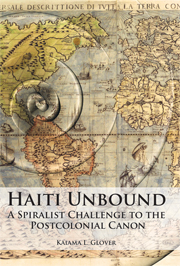Part V - Conclusions: No Lack of Language
Summary
This time, I will not perish from a lack of language. Of a language that is mine and that my people understand.
—Jean-Claude FignoléAs I have noted throughout this study, the Spiralist authors are, by virtue of the very fact of their writings, members of Haiti's tiny elite. As such, they have had to face the implicit dilemma of how to represent without speaking for or condescending to the subaltern beings they narrate—individuals and communities who, because they function rarely as subjects of discourse, quite often remain silent, caricaturized, or ignored. Gayatri Spivak, along with many other postcolonial theorists, has thoroughly discussed this predicament. Spivak rejects the notion of the liberal intellectual as champion of the alienated and oppressed masses. At the same time, however, she recognizes that the extremely marginalized are illequipped to speak for themselves and are ultimately condemned to be represented by others. She suggests that the only possible solution to this seeming paradox is for the intellectual to engage solely in the formulation of “constructive questions, corrective doubts” (In Other Worlds 258). The elite writer must, in other words, find a way to narrate realities to which s/he can have no more than limited psycho-social access. This quandary is not unique to the Spiralists, of course. The problem of the writer's distance from his or her indigenous audience is a reality of most postcolonial societies, given that all literary movements necessarily originate from within an educated, and in that respect elite, social class.
- Type
- Chapter
- Information
- Haiti UnboundA Spiralist Challenge to the Postcolonial Canon, pp. 239 - 244Publisher: Liverpool University PressPrint publication year: 2010



